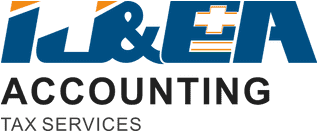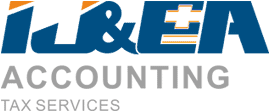In the dynamic world of business, having an efficient and robust accounting process is paramount. This process forms the backbone of any thriving business, directly impacting financial decisions and overall profitability. Let’s delve into the critical strategies to significantly enhance the accounting process in your organisation.
Invest in Automation: Automation of accounting processes is essential for optimising the efficiency of your accounting operations. Automation can improve accounting processes. This includes accounts payable, accounts receivable, payroll, and general ledger. This will reduce errors and increase accuracy.
Utilise Cloud Technology: Cloud-based accounting solutions allow for data to be accessed from any location with an internet connection. This can be extremely beneficial for businesses with multiple locations, allowing for a centralised accounting system. Additionally, cloud-based systems can provide real-time financial data for better decision-making.
Establish Internal Controls. Internal controls help to ensure the accuracy of financial data. They also protect against fraud and misuse of the system.
A system of checks and balances should be set up within the accounting process. This will guarantee accuracy and provide increased insight into the system.
Developing a strategic plan is beneficial. It provides clarity on the requirements and objectives of the accounting process. It will also help to prioritise tasks and allocate resources more efficiently. Additionally, a strategic plan can help to identify areas for improvement and set benchmarks for future growth.
Leveraging the Power of Accounting Software
In today’s digital era, accounting software is no longer a luxury but a necessity for businesses of all sizes. The benefits of integrating a high-quality software package into your accounting process are manifold. This software helps automate routine tasks, reducing computational errors. It also provides insightful reports and offers valuable real-time insights into your financial status.
The right software can significantly simplify intricate tasks such as tax calculations, steps in accounting, payroll processing, streamlined process and invoice management. It offers comprehensive financial reporting. This can give you a clear and precise picture of your financial health at any time.
Maintaining Accurate and Up-to-Date Financial Records
One of the fundamental pillars of an efficient accounting process is keeping your financial records accurate and up-to-date. It can include the company’s bills information from the accounts payable department. Regular updates to your financial data can preempt many potential issues that could arise from inaccuracies.
Inputting and reconciling financial data diligently ensures a transparent and accurate depiction of your financial status. This is essential for you. It can include correct account balances, correct revenue and expenses, correct cash flow statement, retained earnings, and adjusted trial balance. This, in turn, can contribute to better business decisions backed by real-time data.
Implementing a Proactive Approach to Invoicing
Invoicing is a crucial aspect of the accounting process, directly influencing your company’s cash flow. Adopting a proactive invoicing strategy can drastically expedite payments and improve your cash flow.
Consider automating your invoicing process as it can ensure that invoices are promptly sent, accurately calculated, and invoicing data easily traceable. Automation can also enable you to set up late payment reminders, thus saving time and reducing the volume of outstanding balances.
Implementing Robust Internal Controls
Establishing robust internal controls is a crucial aspect of enhancing your accounting process. Internal controls help ensure the accuracy and reliability of financial data while safeguarding against fraud and misuse.
To implement effective internal controls, start by documenting clear policies and procedures for financial transactions and record-keeping. This includes guidelines for approving and documenting expenditures, segregating duties, and maintaining appropriate levels of authorisation.
Regularly financial auditing, reviewing and monitoring your internal controls is essential. Conduct periodic evaluations to identify any weaknesses or gaps in the system and take necessary steps to address them promptly. This may involve updating policies, enhancing security measures, or providing additional training to your staff.
Furthermore, enforcing the segregation of duties is vital to prevent any single individual from having excessive control over the accounting process. By separating responsibilities among different employees, you create checks and balances, reducing the risk of errors or fraudulent activities going undetected.
Implementing internal controls also requires promoting a culture of accountability and ethical behaviour within your organisation. Encourage staff to report any suspicious activities or potential breaches of internal controls. Regularly communicate the importance of adhering to policies and the consequences of non-compliance.
By implementing robust internal controls, you enhance the reliability and integrity of your accounting process, ensuring the accuracy of financial data and promoting trust among stakeholders. These controls provide a solid foundation for making informed financial decisions and safeguarding your business’s financial well-being.
Building a Competent Financial Team
Your financial team is the engine that drives your accounting process. Investing in the professional development of your team can significantly enhance your accounting process.
Continual training ensures your team is well-versed in the latest accounting practices, regulations, and technological advancements. It can help correct unadjusted trials balance with correct debits and credits entries and close the books with more accurate data. Encourage ongoing learning to help your team stay ahead of the curve. Provide opportunities for professional growth to fortify your accounting process.
Embracing the Power of Outsourcing
Outsourcing can be a positive move for businesses. For those with complex accounting needs, it can provide solutions.
Smaller businesses may not have extensive in-house resources, making outsourcing a viable option. An external accounting firm can offer a range of experience and expertise. They can help to identify cost-saving measures and efficiency improvements that you may not have thought of.
Cultivating a Culture of Compliance
In the realm of accounting, compliance with regulatory norms is critical. As regulations continually evolve, it’s vital to keep abreast of changes to ensure your operations remain legally compliant and ethically sound.
Creating and nurturing a culture of compliance within your organisation can mitigate the risk of legal penalties, financial loss, and potential positive reputational damage. A culture of compliance also promotes transparency, accountability, and ethical business practices.
Conclusion
Improving your accounting process is a continuous journey that demands diligence, adaptability, and an unwavering commitment to best practices. Implementing these strategies will streamline your operations, increase financial transparency, maintain business reputation and position your business for sustainable growth and success.












